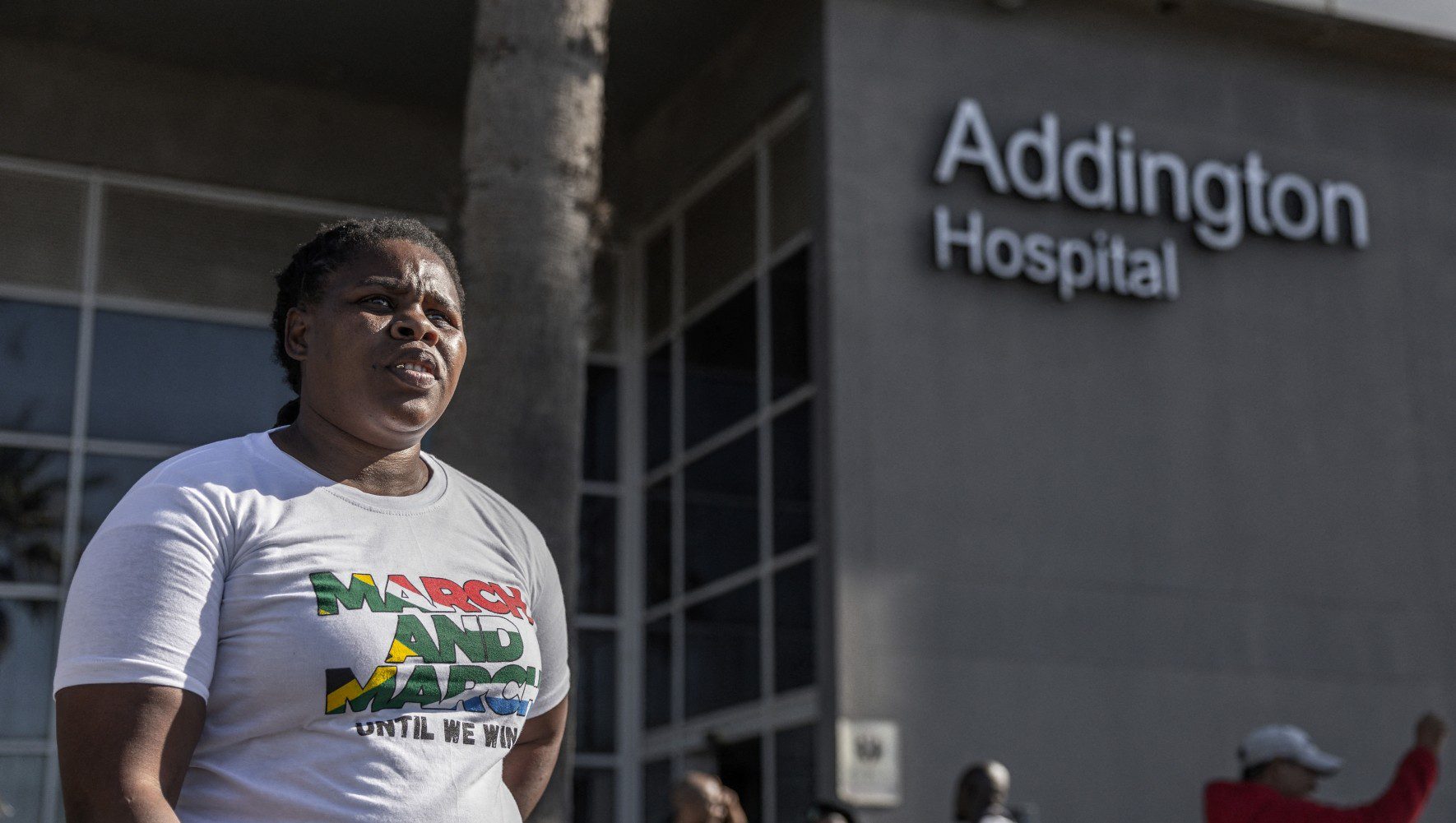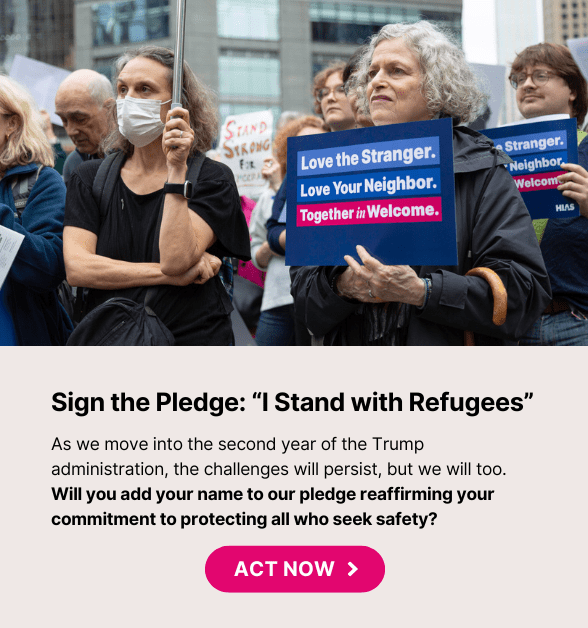Asylum Seekers Lead the Charge for Rights in Israel
By Andrea Gagne, HIAS Public Affairs
Feb 17, 2021
For asylum seekers in Israel, the mass unemployment, food insecurity, and lack of access to health care caused by the COVID-19 pandemic highlights their decade-long struggle for refugee status and basic rights.
Most asylum seekers entered the country between 2008 and 2012, but virtually none have been granted refugee status and the protection that comes with it. According to a HIAS Israel report released last year, the Israeli government has recognized only 0.06 percent of asylum claims, leaving more than 30,000 asylum seekers in limbo. The government has also stigmatized asylum seekers, calling them "infiltrators" and presenting them as a potential threat.
HIAS recently held a call with organizers and leaders from the asylum-seekers community about their experiences trying to find safety and refuge in Israel. The New Israel Fund co-sponsored the event.
The pandemic has created unprecedented challenges for the asylum seekers in Israel, who are mostly Sudanese and Eritrean. More than 80 percent of the community is estimated to be out of work, and their lack of legal status means they are unable to access basic relief services.
"Coronavirus hit the whole community of asylum seekers in Israel so terribly,” said Monim Haroon, head of the Sudanese Community Coronavirus Committee in Israel, who said 2020 was one of the most intense years in his life. “I saw the suffering of people. Single mothers. Families. No income. No medical care."
Despite the precarious situations they have been forced into, community activists are working to lift each other up.
Simret Tekele, director of the Eritrean Women's Community Center, has overseen a weekly food pantry for women and families in need since the pandemic first began. “It is really hard when I see single mothers with three children in a small house with no internet connection," she said. "When they come to the center, most of the time I am crying. I can’t solve their problems. The only thing we can give them is food.”
In Israel, HIAS plays a critical role helping refugees secure legal status, the first step toward regaining control and stability in their lives. HIAS Israel's staff also helps refugees access social rights and services, facilitates resettlement, and works closely with the private sector to provide pro bono legal support for refugees.
Even with the work of HIAS and partners in the community, however, asylum seekers will likely continue to struggle until the government grants asylum seekers the full legal rights that come with refugee status.
Berhane Negase punctuated the pain felt by the asylum-seeker community. Negase serves as chairman of the Eritrean Asylum Seeker Community in Israel and he wondered why the Israeli government closes its eyes to the problems of asylum seekers.
"We made it to Israel, now 15 years later there is no change...Elie Wiesel said in Yiddish, un di velt hot geshvign — 'the world is silent,'" Negase said. "Here in Israel the government of Israel is silent."



